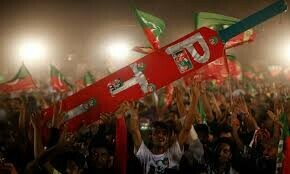Even though the Supreme Court postponed proceedings on an application seeking yet another adjournment on October 11 and warned that no further request for adjournment will be considered, the PTI requested that the new application be presented to a three-judge committee for the formation of a bench consisting of at least five and preferably eight judges of the apex court to hear the matter.
The review petition filed by the PTI against the January 13 court ruling that upheld the Election Commission of Pakistan (ECP) decision to deny it the election symbol of the cricket bat is scheduled to be heard by a three-member bench headed by Chief Justice of Pakistan (CJP) Qazi Faez Isa on Monday.
The PTI argued in its new application for senior counsel Hamid Khan that the pending judgment was per-in-curiam (without jurisdiction) because it was issued by a bench that was “not legally constituted” in accordance with the Supreme Court (Practice and Procedure) Act, 2023.
Hamid Khan wants “unbiased” judges to hear opposition party cases. The PTI argued that the ECP, a constitutional and statutory body performing regulatory and quasi-judicial functions, was not an “aggrieved person” during the election symbol case. Consequently, its emphasis on denying the party of its political race image through its choice made it a “hardliner party” in repudiation of the command under Article 218(3).
It argued that the bat symbol case was per-in-curam because it didn’t take into account the Supreme Court’s larger bench’s decisions in the 1988 and 1989 Benazir Bhutto cases, as well as the 18th Amendment’s legislative changes, which included the omission of clause 4. The statement had given the regulative premise to Segment 215 of the Decisions Act, 2017.
The PTI was also surprised to learn that the ECP opposed it and the Sunni Ittehad Council (SIC) during the first round of litigation in the SC as a “primary contesting party.” However, the ECP’s primary function under Article 218(3) is to act honestly, justly, fairly, in accordance with the law, and to prevent corrupt practices.
In this case, a number of political parties made counterclaims regarding their entitlement to the contested reserved seats. As an adjudicatory body, the ECP decided these counterclaims. As a result, the ECP’s role in this case was akin to that of a judge.
“Biased judges” Hamid Khan claimed in another application that the benches headed by CJP Qazi Faiz Isa and other judges had been consistently deciding cases against the PTI, despite the cases’ merits and previous judicial precedents that were in their favor. It led to an extremely impressive discernment that the CJP purportedly and certain different adjudicators supposedly had solid predisposition against the party, he lamented.
In spite of their obligations to act in accordance with SC orders, the application claims that executive authorities like the ECP openly defied such orders. This has prompted other authorities, like the speaker of the National Assembly, to call on the ECP to openly defy the SC’s short order of July 12, which clearly goes against the Constitution’s fundamental principles.



